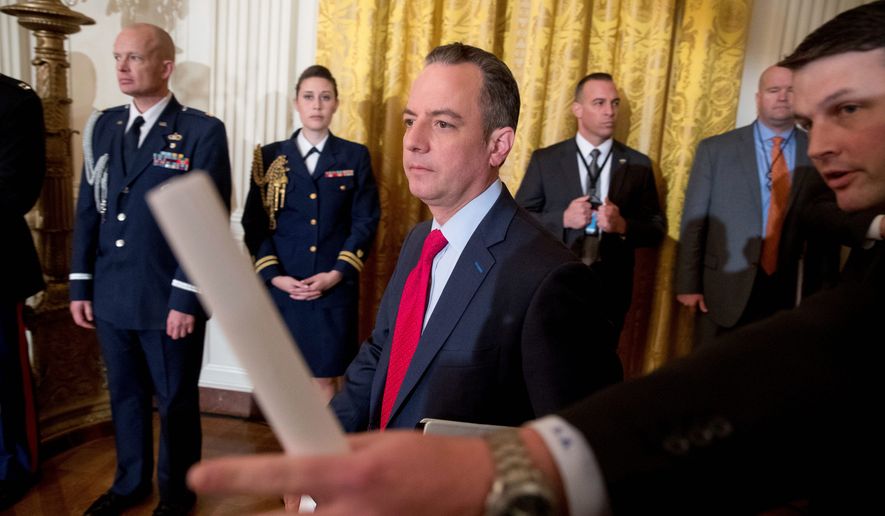President Trump could issue additional executive orders expanding the list of Muslim-majority countries whose people are banned from emigrating to the United States, White House Chief of Staff Reince Priebus said Sunday.
Future White House executive orders could include countries such as Saudi Arabia, Pakistan, Afghanistan and Egypt being added to the list of banned countries, Mr. Priebus said during an interview on NBC’s “Meet The Press.”
“Perhaps other countries needed to be added to an executive order going forward,” Mr. Priebus said regarding expansion of Mr. Trump’s immigration action.
Administration officials stuck to the initial list of seven Mideast and North African nations — Iran, Iraq, Syria, Somalia, Sudan, Libya and Yemen — banned under executive order since they were “already been codified and identified” as presenting a terrorist threat by the Obama White House and Congress, he said.
“This is all done for the protection of Americans,” Mr. Priebus said. “President Trump is not willing to get this wrong.”
Almost none of the terrorist attacks carried out in the United States, from the Sept. 11 attacks to the recent spate of so-called “lone wolf” strikes, have been carried out by citizens from the countries listed in Mr. Trump’s executive order.
Mr. Priebus also suggested that U.S. citizens traveling to any of the seven countries outlined in the executive order could be subjected to additional vetting by Transportation Security Administration officers upon re-entry to the United States.
“I would suspect that if you’re an American citizen traveling back and forth to Libya, you’re likely to be subjected to further questioning when you come into an airport,” he said Sunday. “I would suspect that most Americans would agree that that might be a good thing to do.”
Implementation of the White House’s travel ban sparked a slew of spontaneous protests at several international airports across the United States, as individuals arriving from the countries on the list with valid U.S. visas and green cards, were refused entry.
On Saturday, U.S. District Judge Ann Donnelly of the Eastern District of New York issued a court order temporarily suspending elements of Mr. Trump’s travel ban. The order was issued after lawyers from the American Civil Liberties Union filed an action with the court, arguing the travel ban was unconstitutional.
Critics of the administration’s immigration plan claim the move is tantamount to the Muslim ban candidate Trump called for during his campaign, infuriating human rights activists, international policy experts and some inside the Republican Party.
• Carlo Muñoz can be reached at cmunoz@washingtontimes.com.




Please read our comment policy before commenting.